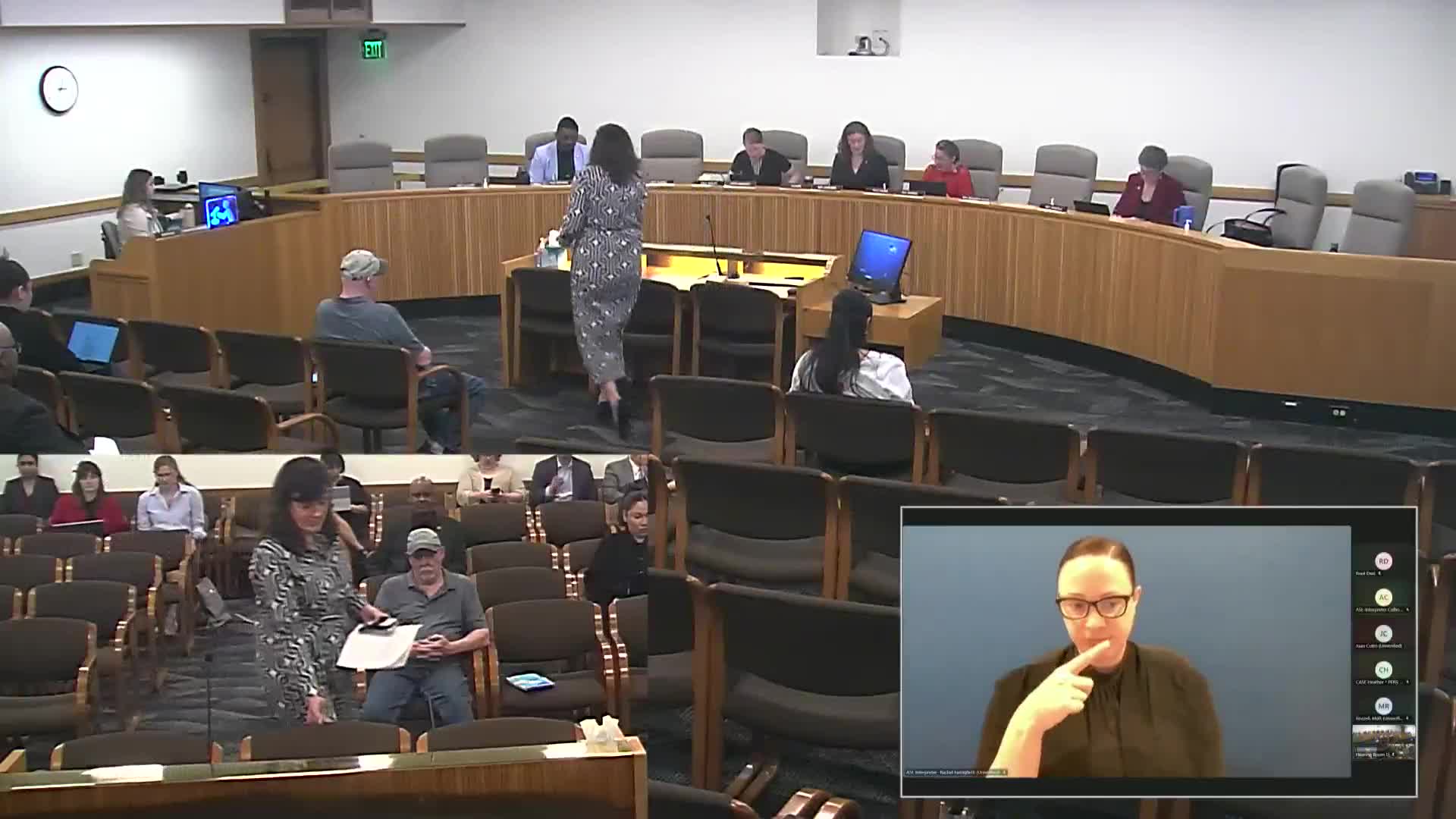Committee hears bill to require plain-language pay-stub explanations for new hires
May 05, 2025 | Workplace Standards, House of Representatives, Committees, Legislative, Oregon
This article was created by AI summarizing key points discussed. AI makes mistakes, so for full details and context, please refer to the video of the full meeting. Please report any errors so we can fix them. Report an error »

Senate Bill 906 would require employers to give every employee, at the time of hire, a written explanation of the earnings and deductions shown on required itemized pay statements and to review and update that information by Jan. 1 each year.
The bill’s sponsor and supporters told the House Committee on Labor and Workplace Standards on May 5 that many pay stubs use acronyms and technical payroll codes that workers do not understand, and that clearer documentation would prevent disputes and reduce filings at the Bureau of Labor and Industries.
Senator Kathleen Taylor, the bill sponsor, told the committee: "[The bill] requires employers to provide, at the time of hire, a written statement detailing pay rates, payroll codes and deductions in plain language." She said the measure directs the Bureau of Labor and Industries to develop a model template employers may use and permits the BOLI commissioner to assess a civil penalty not to exceed $500 for violations.
Hannah Winchester of the Oregon Federation of Nurses and Health Professionals, AFT Local 5017, testified that nurses and other health-care workers frequently encounter paystubs with dozens of abbreviated codes, which has contributed to both underpayment and accidental overpayments. Winchester said standardization would be a "preventative measure to prevent costly errors."
Amanda Krauss, appearing for OFNHP, described stakeholder negotiation that removed opposition and yielded a compromise the group supports. Committee members pressed on enforcement and remedial practice: Representative Nelson asked how employers must notify employees when payroll codes change. Senator Taylor answered that the bill requires an annual update and that BOLI will work with common-code lists, but that in practice BOLI would likely exercise discretion for minor or one-time oversights.
Committee staff summarized that the measure passed the Senate with recorded Senate vote counts given in the hearing (staff initially reported 25 ayes, 7 no, 3 excused; Senator Taylor also referenced a Senate tally during testimony). Supporters said the bill carries a minimal fiscal impact and no revenue impact.
No formal action was taken by the committee during this hearing; the public hearing was closed the same day.
The bill would change the information employers must give to new hires and create a BOLI model guidance document; supporters said the change aims to help workers understand pay calculations and reduce complaints to enforcement agencies.
Committee members and witnesses urged clear implementation guidance and noted BOLI would have discretion in enforcement. If the committee advances the bill, follow-up materials to clarify enforcement practice and the exact notification trigger for code changes would be useful.
The bill’s sponsor and supporters told the House Committee on Labor and Workplace Standards on May 5 that many pay stubs use acronyms and technical payroll codes that workers do not understand, and that clearer documentation would prevent disputes and reduce filings at the Bureau of Labor and Industries.
Senator Kathleen Taylor, the bill sponsor, told the committee: "[The bill] requires employers to provide, at the time of hire, a written statement detailing pay rates, payroll codes and deductions in plain language." She said the measure directs the Bureau of Labor and Industries to develop a model template employers may use and permits the BOLI commissioner to assess a civil penalty not to exceed $500 for violations.
Hannah Winchester of the Oregon Federation of Nurses and Health Professionals, AFT Local 5017, testified that nurses and other health-care workers frequently encounter paystubs with dozens of abbreviated codes, which has contributed to both underpayment and accidental overpayments. Winchester said standardization would be a "preventative measure to prevent costly errors."
Amanda Krauss, appearing for OFNHP, described stakeholder negotiation that removed opposition and yielded a compromise the group supports. Committee members pressed on enforcement and remedial practice: Representative Nelson asked how employers must notify employees when payroll codes change. Senator Taylor answered that the bill requires an annual update and that BOLI will work with common-code lists, but that in practice BOLI would likely exercise discretion for minor or one-time oversights.
Committee staff summarized that the measure passed the Senate with recorded Senate vote counts given in the hearing (staff initially reported 25 ayes, 7 no, 3 excused; Senator Taylor also referenced a Senate tally during testimony). Supporters said the bill carries a minimal fiscal impact and no revenue impact.
No formal action was taken by the committee during this hearing; the public hearing was closed the same day.
The bill would change the information employers must give to new hires and create a BOLI model guidance document; supporters said the change aims to help workers understand pay calculations and reduce complaints to enforcement agencies.
Committee members and witnesses urged clear implementation guidance and noted BOLI would have discretion in enforcement. If the committee advances the bill, follow-up materials to clarify enforcement practice and the exact notification trigger for code changes would be useful.
View full meeting
This article is based on a recent meeting—watch the full video and explore the complete transcript for deeper insights into the discussion.
View full meeting
